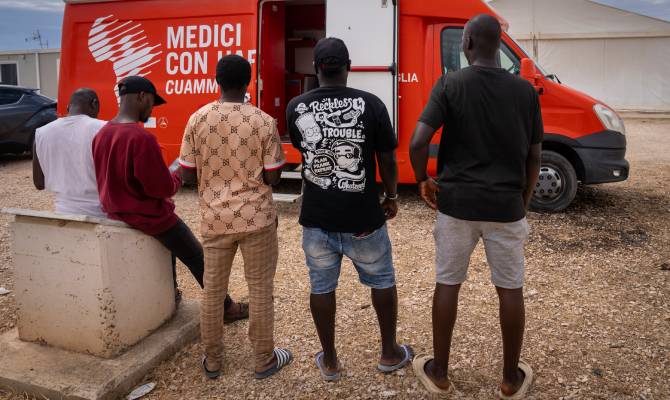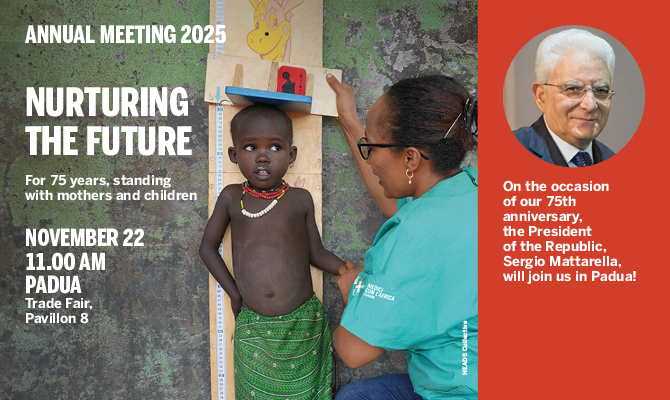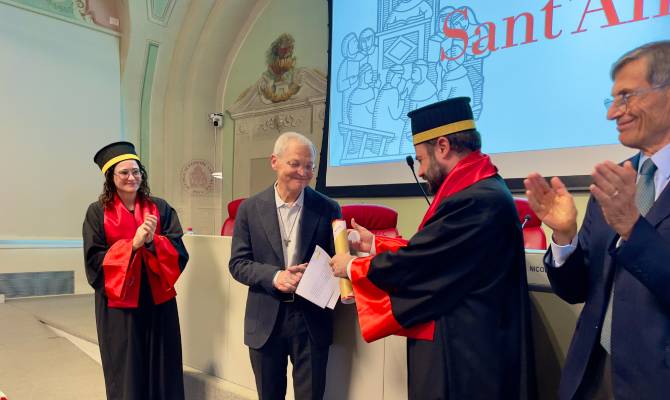Lamine* is jumping into our van when we meet him. We are in San Severo, in the Casa Arena ghetto, province of Foggia. Here, hundreds of seasonal workers—mostly migrants—live without rights or protections. The settlement, once equipped with basic services, today has no electricity or hot water: people cannot even charge their phones and make do as best they can, in crowded dormitories or containers, surrounded by old bikes and broken-down cars.
Lamine is accompanying a friend to a medical visit. His friend arrived in Italy only eight months ago and hasn’t been feeling well. Lamine translates for him, stays by his side, and makes sure he is carefully examined. That is how we begin talking with him, in English.
“He’s been here a short time, and he’s still struggling with the journey,” Lamine tells us. “Eight months aren’t enough to overcome the trauma of migration. Lately I can see he’s not doing well—at work he’s slower, he struggles. He’s not himself.”
Lamine himself has been in Italy for ten years. He left Gambia, crossed the desert and Libya—where he waited three months for his brother so they could cross the Mediterranean by boat together. Since then, he has been working in the fields around Foggia. Was it worth it?
“Yes, it was absolutely worth it. It’s hard, but in my country there was no future. Here, it’s not that different from Gambia, but at least it’s a little better.”
He lives in a crowded dormitory with dozens of others, cooks on makeshift stoves in the middle of the room, and faces the same daily hardships as his companions. Still, he manages to send something back home to his mother, brothers, and younger sisters: “They are my first thought.”

After his friend, Lamine also asks to be examined: heavy loads and the physical strain of farm work are causing him back pain. These are common ailments we often encounter during our health assistance activities.
Through the Su.Pr.Eme 2 project, our mobile clinics regularly reach the so-called ghettos of Foggia—from Casa Arena to Casa Sankara and other informal settlements—providing basic care, listening, and support. It is daily work, built on relationships formed step by step, leaving no one behind.
On this World Day of Migrants and Refugees, which Pope Francis has dedicated this year to the theme “Migrants, messengers of hope”, we reflect on Lamine’s story. With his braids, a baseball cap, and a smile, he looks like someone who has somehow found his path—a path that passed through the desert, through Libya, across the sea, and has ended up in the harsh, difficult conditions of the fields in Foggia. Conditions that, to him, still seem like an acceptable prospect.
*Name has been changed.





